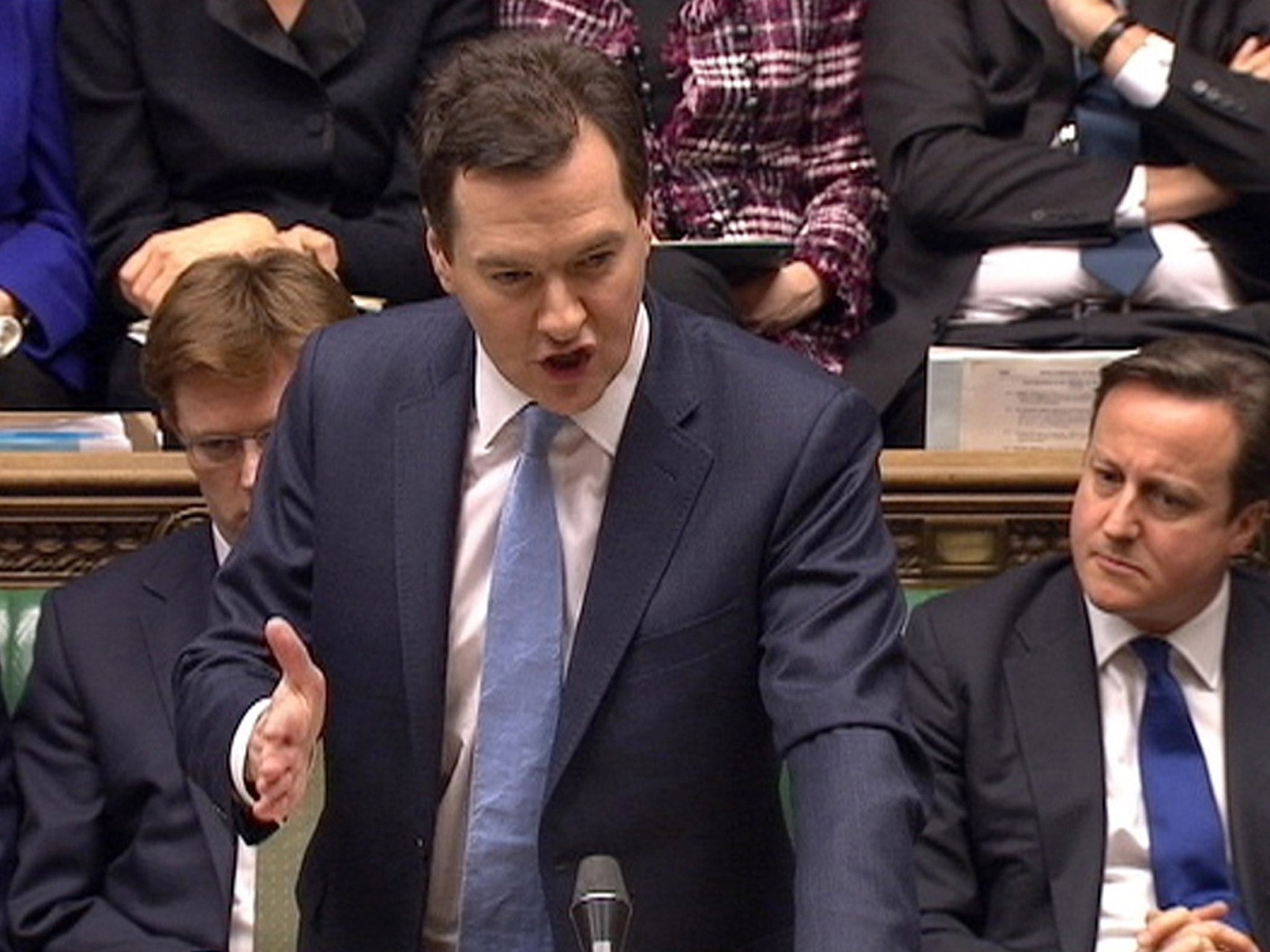Recovery takes time. But, with a bit of luck, we could be back on the right track
The first question is whether the tweaks in the Budget are likely to boost growth


Your support helps us to tell the story
From reproductive rights to climate change to Big Tech, The Independent is on the ground when the story is developing. Whether it's investigating the financials of Elon Musk's pro-Trump PAC or producing our latest documentary, 'The A Word', which shines a light on the American women fighting for reproductive rights, we know how important it is to parse out the facts from the messaging.
At such a critical moment in US history, we need reporters on the ground. Your donation allows us to keep sending journalists to speak to both sides of the story.
The Independent is trusted by Americans across the entire political spectrum. And unlike many other quality news outlets, we choose not to lock Americans out of our reporting and analysis with paywalls. We believe quality journalism should be available to everyone, paid for by those who can afford it.
Your support makes all the difference.We are stuck.
The deficit is not coming down and it will be extremely hard to get it down until growth picks up. So what do you do? The answer is three things. You squeeze down current public spending a bit and use the money to try to lift the spirits of the business community in the hope it will keep hiring. You try to unlock the housing market. And you nudge the Bank of England, under its new governor, to find ways of pumping yet more money into the system.
The big fiscal story is shown in the graph. In its first couple of years the coalition did make a start on cutting the deficit, getting it down to just under 8 per cent of GDP. This financial year – the one that ends in two weeks’ time – it has made no further progress. The coming year, the one highlighted, will be pretty much the same again. So the central plan of the Coalition, that each year the deficit would come down just a bit more, is blown out of the water. You can have a debate as to the reasons why – is it policy failure, a consequence of the eurozone disaster or plain bad luck? – but you cannot ignore the harsh numbers. As a result it will take even longer to start cutting the national debt and the peak debt will be even higher than seemed likely even three months ago. There has to be growth.
So the first question is whether the tweaks in the Budget are likely to boost growth. There is no overall shift in fiscal stance, so the issue is whether the shuffle of the pack will help. The good news is that the initial reaction of the business community is unambiguously positive, which makes for a change, and it is hard to see any big negatives. The change to the National Insurance regime will be of material help to small businesses. But companies will not suddenly go out and hire people because ofit. It cannot do any harm but let’s wait and see whether it has a material impact. But taken with all the other stuff for business, it is a positive signal, and signals do matter.
Unlocking the housing market is also important. The Bank of England’s quantitative easing programme has helped put a floor under house prices but it has not increased the supply of mortgages to any material extent. There is a structural reason for this. At the peak of the boom roughly half of all mortgages came from foreign or fringe lenders. They have all gone, back to Iceland or wherever. Only the core lenders remain, and they don’t have funds to meet demand. So they ask for huge deposits.
What the government is doing is trying in some measure to replace that missing chunk of supply. It is novel, so it is hard to assess how important the changes will be in practice, but the government is certainly pushing at an open door.
We do need more homes and it would be very helpful to the economy as a whole to have more activity in the housing market. But when a few years hence we look back to this Budget, I suspect the thing it will be remembered for will be the changes made to the mandate of the monetary policy committee. It will not be as big a change as giving the Bank of England the authority to set interest rates in 1997, or the introduction of unconventional monetary policies, such as quantitative easing after the crash. But having the Bank, under Mark Carney, taking on a more active responsibility for promoting growth and allowing it to give forward guidance to the markets are interesting innovations. If the plan succeeds, this could, over time, have a real impact on growth.
Yes, over time. Things do take time. There is an inevitable frustration with economic policy, for the authorities pull the levers and then are surprised that nothing happens. You could argue that the Treasury and the Bank of England should have pulled the levers two years ago, not now. Once speed does pick up it will become self-sustaining. But it has been a long wait.
Join our commenting forum
Join thought-provoking conversations, follow other Independent readers and see their replies
0Comments